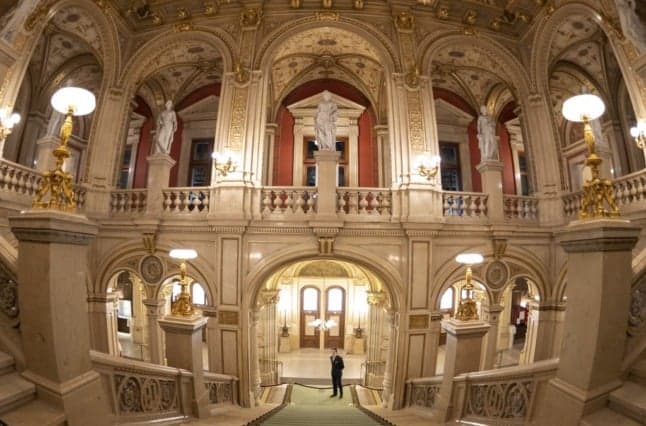Today in Austria: A roundup of the latest news on Friday

Find out what's going on in Austria on Friday with The Local's short roundup of today's important news.
Italy lifts compulsory testing for cross-border commuters
People who live within 60 kilometers from the Italian border no longer have to undergo a coronavirus test to enter the country. The change affects people living in Austria, Switzerland, Slovenia and France who want to travel to Italy for professional reasons or for a day trip.
The new regulation also applies to Italians who live up to 60 kilometers from the border and want to travel to Austria, who do not have to take a test when they return to their home country.
READ MORE: Explained: The new rules for entering Austria
Germany to 'remove most states in Austria from red list'
Germany could remove Austria from the red list today, according to Die Presse newspaper, with the exception of the states of Tyrol and Vorarlberg. The warning against unnecessary tourist trips to Austria should also be dropped.
The information has not been confirmed by the German Foreign Ministry. All of Austria with the exception of the communities Jungholz and Mittelberg / Kleinwalsertal have been on the list of risk areas of the German Robert Koch Institute since November 1st, 2020.
READ MORE: Germany bans travel from UK over covid Indian variant
Seven-day incidence at 32.9
The seven-day incidence, or the number of new infections with the coronavirus in the past seven days per 100,000 inhabitants, is 32.9. With the exception of Vorarlberg (82.1) and Tyrol (51.5), all federal states are below 50 - with Salzburg (19.3) and Burgenland (16) having the lowest values.
President Alexander Van der Bellen visits German President, will visit pope
Austrian President Van der Bellen visited his German counterpart Steinmeier on Thursday, on his first foreign trip since the pandemic, emphasising the German-Austrian friendship despite initial “communication problems” between the two countries over their respective handling of the pandemic, ORF reports.
Van der Bellen will travel to Rome on Sunday and meet Pope Francis and then Cardinal Secretary of State Pietro Parolin in the Vatican on Monday morning
Wolfgang Brandstetter resigns from Constitutional Court
Wolfgang Brandstetter has announced his resignation from the Constitutional Court VfGH following the publication of chat messages between Brandstetter and Christian Pilnacek, a senior civil servant at the Justice Ministry the Kronen Zeitung reports.
The chats messages have caused controversy because they contain alleged criticisms against public prosecutors, fellow judges, and instances of racism.
Pilnacek has been suspended pending an investigation, the newspaper notes.
Comments
See Also
Italy lifts compulsory testing for cross-border commuters
People who live within 60 kilometers from the Italian border no longer have to undergo a coronavirus test to enter the country. The change affects people living in Austria, Switzerland, Slovenia and France who want to travel to Italy for professional reasons or for a day trip.
The new regulation also applies to Italians who live up to 60 kilometers from the border and want to travel to Austria, who do not have to take a test when they return to their home country.
READ MORE: Explained: The new rules for entering Austria
Germany to 'remove most states in Austria from red list'
Germany could remove Austria from the red list today, according to Die Presse newspaper, with the exception of the states of Tyrol and Vorarlberg. The warning against unnecessary tourist trips to Austria should also be dropped.
The information has not been confirmed by the German Foreign Ministry. All of Austria with the exception of the communities Jungholz and Mittelberg / Kleinwalsertal have been on the list of risk areas of the German Robert Koch Institute since November 1st, 2020.
READ MORE: Germany bans travel from UK over covid Indian variant
Seven-day incidence at 32.9
The seven-day incidence, or the number of new infections with the coronavirus in the past seven days per 100,000 inhabitants, is 32.9. With the exception of Vorarlberg (82.1) and Tyrol (51.5), all federal states are below 50 - with Salzburg (19.3) and Burgenland (16) having the lowest values.
President Alexander Van der Bellen visits German President, will visit pope
Austrian President Van der Bellen visited his German counterpart Steinmeier on Thursday, on his first foreign trip since the pandemic, emphasising the German-Austrian friendship despite initial “communication problems” between the two countries over their respective handling of the pandemic, ORF reports.
Van der Bellen will travel to Rome on Sunday and meet Pope Francis and then Cardinal Secretary of State Pietro Parolin in the Vatican on Monday morning
Wolfgang Brandstetter resigns from Constitutional Court
Wolfgang Brandstetter has announced his resignation from the Constitutional Court VfGH following the publication of chat messages between Brandstetter and Christian Pilnacek, a senior civil servant at the Justice Ministry the Kronen Zeitung reports.
The chats messages have caused controversy because they contain alleged criticisms against public prosecutors, fellow judges, and instances of racism.
Pilnacek has been suspended pending an investigation, the newspaper notes.
Join the conversation in our comments section below. Share your own views and experience and if you have a question or suggestion for our journalists then email us at [email protected].
Please keep comments civil, constructive and on topic – and make sure to read our terms of use before getting involved.
Please log in here to leave a comment.